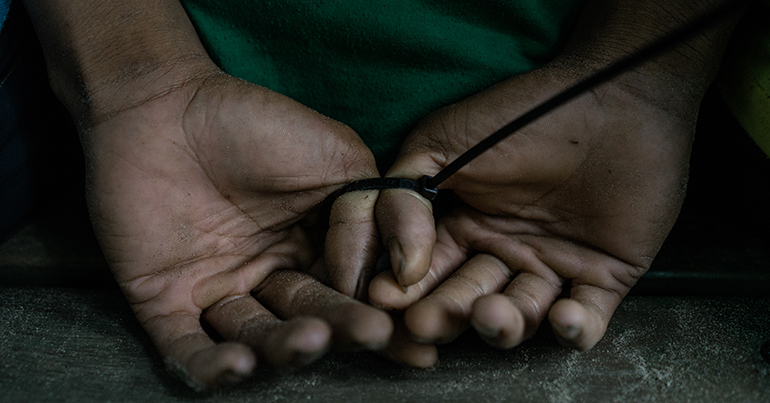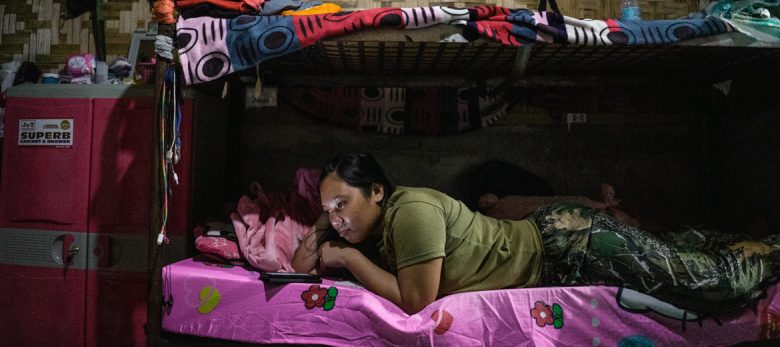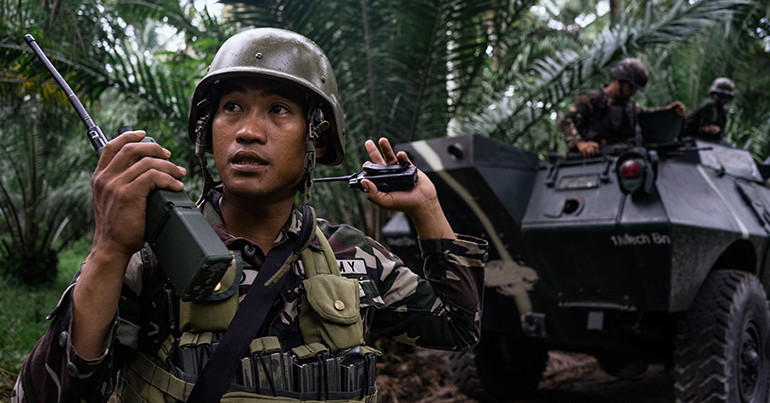“During the evenings, my mother couldn’t sleep. You could see the explosions,” remembers Kristine Porcadilla, a private in the Armed Forces of the Philippines. “In the mornings our lives seemed normal. We would play and see the fighter jets. We thought we were just playing, but the stench of the dead reeked in the rice fields.”
Porcadilla grew up in Mindanao, a region in the south of the Philippines that is home to the second-oldest internal conflict in the world. President Rodrigo Duterte declared martial law after Isis’ occupation of Marawi, a city in Mindanao, led to months of heavy combat – the longest urban battle in the Philippines’ modern history.
Porcadilla recalls classmates dropping out of school to join extremist groups. But Porcadilla, 23, resolved to join the Armed Forces of the Philippines instead. She now finds herself in the 33rd infantry battalion, in which more than 90% of the soldiers are from Mindanao and have known nothing but conflict their whole lives.

In this battalion, secluded by rice fields and an abandoned runway, mornings begin with a ‘boodle fight’, the Philippine army’s practice of sharing a meal of rice and, usually, canned meat, spread over banana leaves and eaten by hand. The military is interfaith, but here they say prayers together – for the country and for the troops in Marawi. During training the unit is close-knit and attuned to each others’ strengths and weaknesses, matter-of-factly marking out private Glen Granada, a woman, as the battalion’s best shot. During the evenings, when the lights go off there is the sound of the crickets, and the faint singing of the ballads so beloved of Filipinos.

The battle of Marawi formally concluded in October, but the southern Philippines remains fraught with conflict and continues to be a hotbed for the spread of radical Islam. Following the siege of Marawi, the 33rd infantry battalion’s operations now include training for close-quarter battle, even though historically the Philippine army is largely trained for jungle warfare, with guerrillas operating in mountainous areas.

But battles now happen in the cities, and with the implementation of martial law, such training has entwined with the country’s infamous war on drugs. In a small gym in nearby Maguindanao province, a Summit Against Terrorism and Illegal Drugs was held just a few days before an operation was conducted arresting men suspected of running a drug operation and assisting the Isis-affiliated Bangsamoro Islamic Freedom Fighters (BIFF) with weaponry. Requests from the National Police for assistance in the president’s “war on drugs” have become a fact of life for the army here, but before the operation, superiors made it clear that troops should avoid at all costs becoming involved in the extrajudicial killings that have come to symbolise the brutal crackdown on drugs.

For many members of this battalion, serving in the military was not just about patriotism, it was a way out of the poverty and a means to end the conflict that have afflicted the region for decades. “They see the value of peace for the community, and what they can do to get there,” Cabunoc says. But this ‘way out’ is a long road ahead, and for the soldiers of the 33rd infantry battalion and countless others like it, the task of peacekeeping is a thorny one.
This article was published in the December edition of Southeast Asia Globe magazine. For full access, subscribe here.


